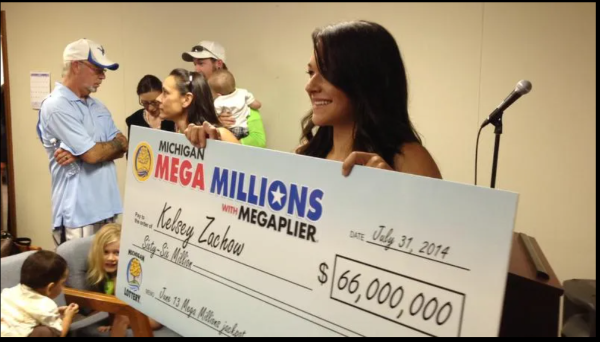History of the EURO: How it was born
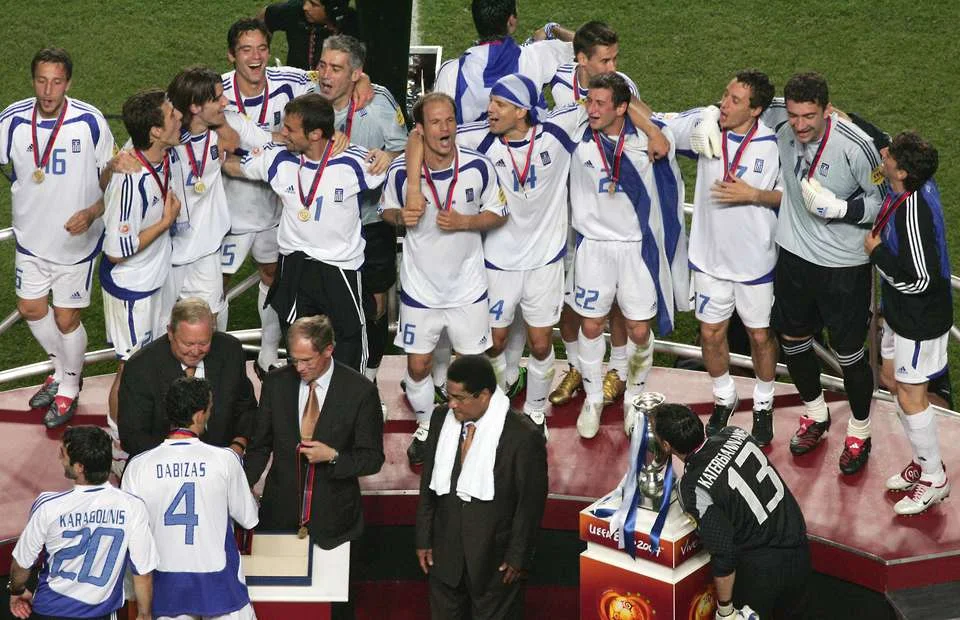 |
| Photo: Getty Images |
The European Football Championship is now a major worldwide sporting attraction. And it was in June 1958 that the illustrious and prestigious competition was born. Here, we look at how the EURO, as it has become known, took shape and took flight in the 1950s.
Euro 2020: History
The 2020 UEFA European Football Championship, commonly referred to as 2020 UEFA European Championship, UEFA Euro 2020, or simply Euro 2020, is the 16th UEFA European Championship, the quadrennial international men's football championship of Europe organised by the Union of European Football Associations (UEFA).
The tournament, to be held in 11 cities in 11 UEFA countries, was originally scheduled from 12 June to 12 July 2020. The tournament was postponed due to the COVID-19 pandemic in Europe and rescheduled for 11 June to 11 July 2021. The tournament retains the name "UEFA Euro 2020".
UEFA President Michel Platini said in 2012 that the tournament was to be hosted in several nations as a "romantic" one-off event to celebrate the 60th "birthday" of the European Championship competition. Having the largest capacity of any of the stadiums entered for the competition, Wembley Stadium in London is scheduled to host the semi-finals and final for the second time, having done so before at the 1996 tournament in the stadium's former incarnation. The Stadio Olimpico in Rome was chosen to host the opening game, involving Turkey and hosts Italy. Originally to be played at 13 venues, two hosts were later removed: Brussels in December 2017 due to delays with the building of the Eurostadium, and Dublin in April 2021 as there was no guarantee that spectators could attend. Spain also changed their host city from Bilbao to Seville to allow an audience at matches.
Portugal are the defending champions, having won the 2016 competition. The video assistant referee (VAR) system will make its debut at the European Championship in this tournament.
'Premature' idea
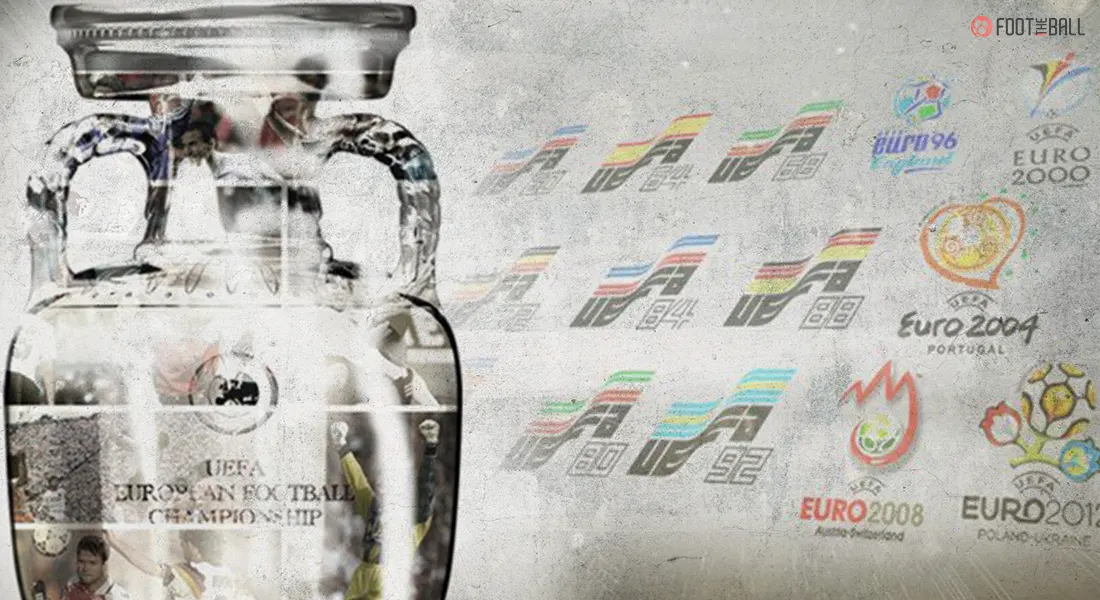 |
| Photo: FootTheBall |
Consequently, the Vienna Congress sent the idea – deemed "premature" – back to the UEFA subcommittee's drawing board. A revamped proposal avoided clashes with the World Cup finals, and the group-stage idea was jettisoned for a direct knockout format to prevent overloading the calendar.
Opposition to the idea remained. Clubs were consulted, and they were reluctant to release players for an increased number of national team matches. The project was postponed again at the Lisbon and Copenhagen Congresses in 1956 and 1957, and was put on the agenda for the next Congress in Stockholm in June 1958. However, in 1957, supporters of the project had won a vote by 15 to 7, with four abstentions and one blank ballot paper. The debate at the Congress in the Swedish capital on 4 June 1958 was intense. The Congress minutes record that the Italian FA president, Ottorino Barassi, "did not consider the creation of this competition as desirable, as it would restrict the international calendar and risked exciting national passions." West Germany said it was inappropriate to create a competition without regulations having been submitted to the Congress. Nevertheless, a majority of the delegates present at the Stockholm Congress came out in favour of launching the competition.
Lunchbreak talks
UEFA's first president, Denmark's Ebbe Schwartz, asked the subcommittee to rediscuss the project during the Congress lunch break, suggesting that the start of the competition be put back to 1959 – an idea that the subcommittee did not wholly endorse. There were calls from delegates for the 31 UEFA member associations at the time to be given the opportunity to re-examine the project. At the start of the afternoon session, however, the UEFA president ended the toing-and-froing conclusively, declaring, according to the Congress minutes, that "the draw would take place on Friday 6 June", before moving on with the agenda.
It had been a long and difficult birth, but it was now 'full steam ahead', and the draw duly took place at the Foresta Hotel in Stockholm two days after the Congress. There were 17 entrants for the inaugural competition – Austria, Bulgaria, Czechoslovakia, Denmark, East Germany, France, Greece, Hungary, Norway, Poland, Portugal, the Republic of Ireland, Romania, Spain, Turkey, the USSR and Yugoslavia. And there were three notable absentees – England, Italy and West Germany.
The first official match in the European Nations' Cup, as it was called, took place on 28 September 1958, when the USSR met Hungary at Moscow's Luzhniki Stadium. The hosts won a round of 16 match 3-1 in front of 100,572 fans (a subsequent preliminary match – drawn by lots to decide the two teams to play it – saw Czechoslovakia emerge victorious against the Republic of Ireland over two legs to create the 16-team knockout field). Anatoli Ilyin scored the first-ever EURO goal for the USSR after just four minutes.
Delaunay's dream comes true
Sadly, Henri Delaunay would never see his dream become reality. He had passed away on 9 November 1955, and was succeeded as UEFA general secretary by his son Pierre, who continued to staunchly champion his father's idea until it was given the green light. In recognition of Henri Delaunay's role in the creation of the new competition, the trophy – provided by the French Football Federation – was named after him.
Pierre Delaunay was optimistic for the future of the competition. "It can be expected," he wrote in the Official UEFA Bulletin in September 1958, "that, allowing for the experience gained from this first edition ... the number of nations will be greater in 1962." His optimism was not misguided – 29 associations entered the second EURO, staged from 1962 to 1964.
The inaugural competition concluded with a final tournament in France in July 1960, featuring four teams – the hosts, Czechoslovakia, the USSR and Yugoslavia. The USSR triumphed by the odd goal in three after extra time in the final against Yugoslavia at the Parc des Princes. From small acorns do large oaks grow – and the stage was set for the development of a competition that has graduated, over six memorable decades, into one of the biggest and most popular sporting events in the world.
READ MORE: EURO 2020 (June 15): Schedule Fixtures, Kick-off Times, TV Channels, Live Stream and Venues
Greatest Moments in European Championship History
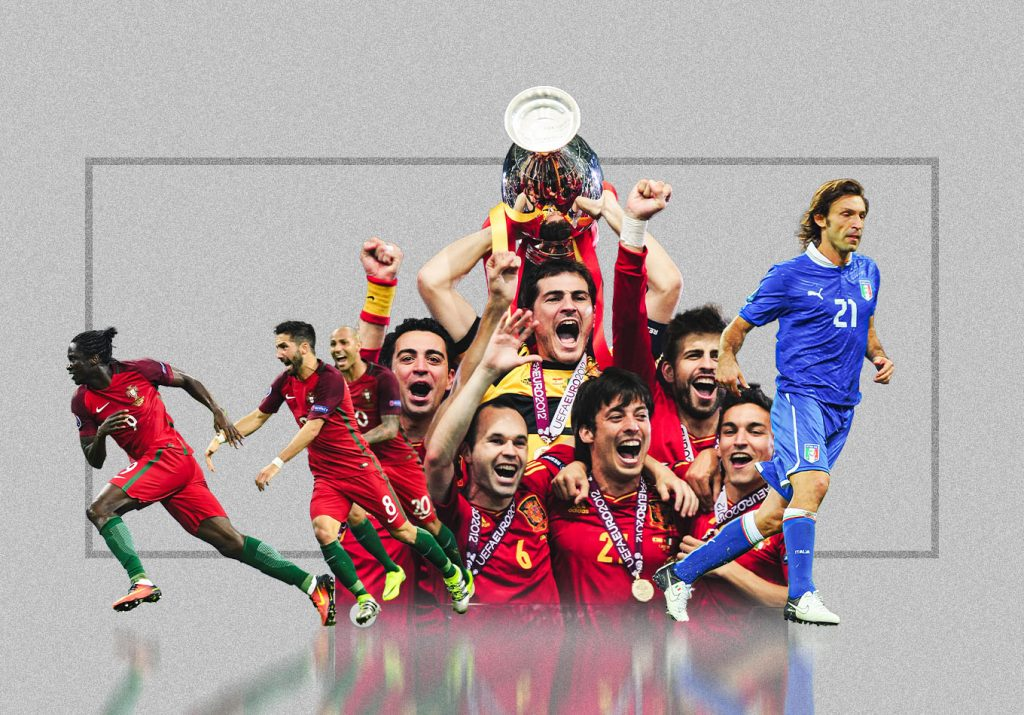 |
| Photo: The Analyst |
Gazza's 'dentist chair' celebration
Paul Gascoigne's finish against Scotland was outrageous enough without the celebration, when he lay on his back as his teammates squirted water into his mouth to recreate the notorious 'dentist's chair' drinking game he had been pictured playing during a trip to Hong Kong before Euro 96. The media were unable to lambast him for long as he lit up the tournament and guided England to the last four.
Andrea Pirlo showing England no mercy
Pirlo once said: 'Football is played with your mind, your feet are just the tools'. And the Italian was all about the mind games in the shootout against England at Euro 2012. The coolest man around opted for a cheeky Panenka at the pivotal moment. Incidentally, it was Euro 1976 that gifted us the Panenka in the first place, courtesy of Antonín Panenka's imaginative spot-kick against Germany.
Greece winning Euro 2004
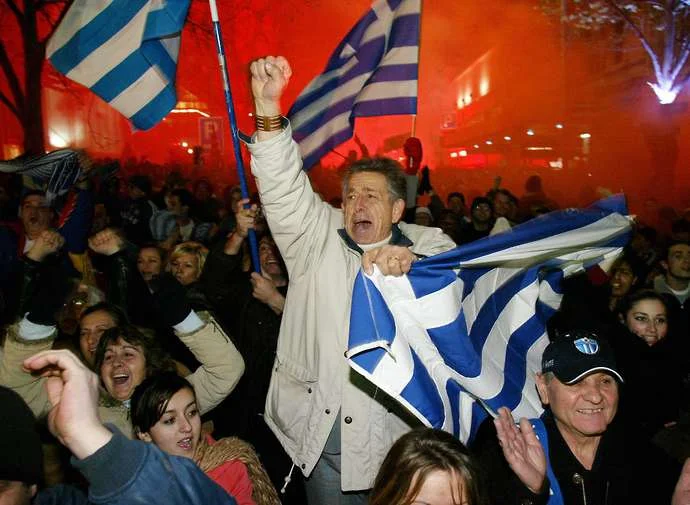 |
| Photo: Getty Images |
It boggles the mind to this day. To this day, Greece are the standard-setters for small nations who dare to dream. They beat host country Portugal 1-0 in the final thanks to a goal from Angelos Charisteas and left Cristiano Ronaldo in tears.
Mario Balotelli's celebration after his brace vs Germany
Balotelli put in one of his best international performances and dominated Die Mannschaft. The Italian's second goal nearly broke the net. The photos of him in a 'Hulk' pose with his shirt off is one of the iconic images from Euro 2012.
Italy beating the USSR on a coin toss
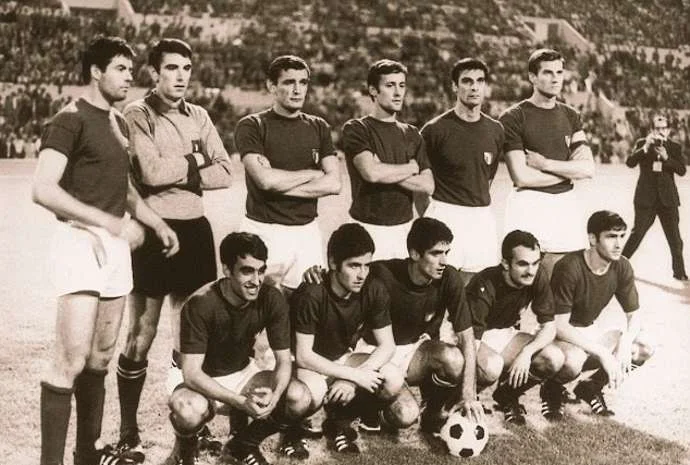 |
| Photo: Getty Images |
There have been plenty of arguments about the fairest way to settle the current season if the fixtures can't be completed, but spare a thought for teams of old who could lose games on a coin toss. That's exactly what happened to the USSR in 1968 after the match finished goalless after extra time.
When Wayne Rooney burst onto the scene
The teenager had already risen to fame with Everton but it was still uncertain how he'd perform on the biggest stage at Euro 2004. The number nine sealed his first, a header, with a cartwheel, before scoring another three. Injury sadly curtailed his tournament prematurely.
 Watch Euro 2020 from African Countries for FREE and Paid Watch Euro 2020 from African Countries for FREE and Paid Football fans in African countries will be able to stream every Euro 2020 match from June 11 to July 11 2021 if they have access ... |
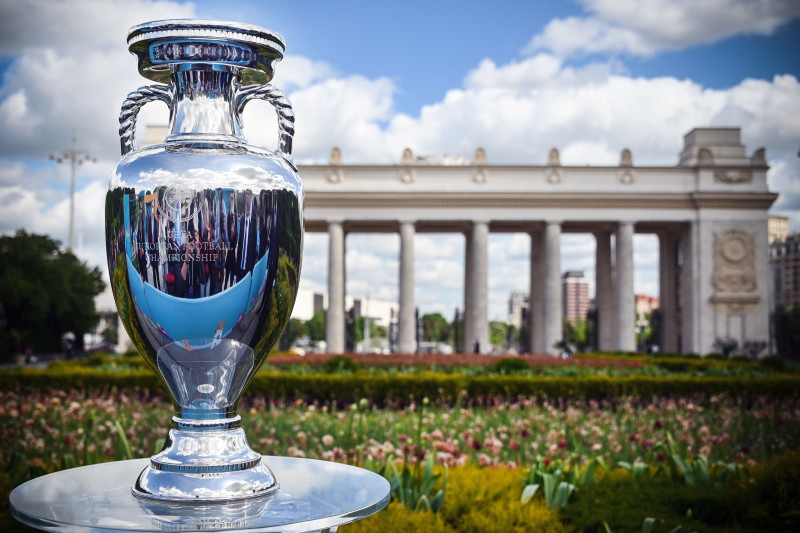 EURO 2020 (June 15): Schedule Fixtures, Kick-off Times, TV Channels, Live Stream and Venues EURO 2020 (June 15): Schedule Fixtures, Kick-off Times, TV Channels, Live Stream and Venues SCHEDULE EURO 2020 - Matchday (June 15): Here is the update of Fixtures, Kick-off Times, Watch FREE Online, TV Channel, Live Stream from UK, US ... |
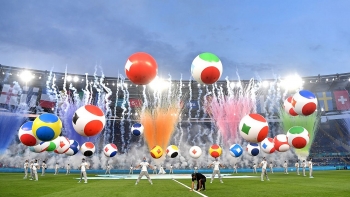 Watch Euro 2020 in New Zealand for FREE and Paid Watch Euro 2020 in New Zealand for FREE and Paid How to Watch Euro 2020 from New Zealand for FREE and Paid: Live Stream, Online, TV Channels for FREE and Paid. |
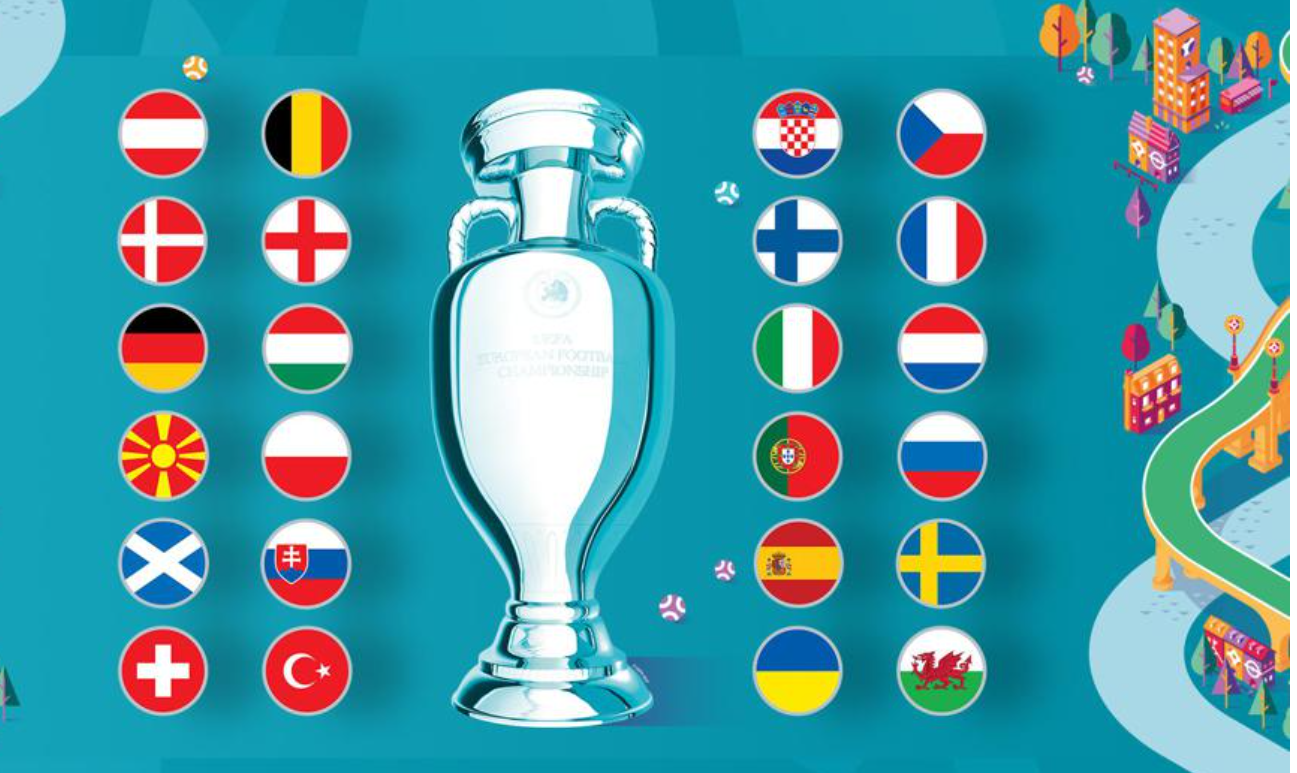 EURO 2020: All The Team News, Starting Line-ups and Predictions EURO 2020: All The Team News, Starting Line-ups and Predictions We update with starting line-ups, latest all 24 team news and predicted as the tournament progresses. |



